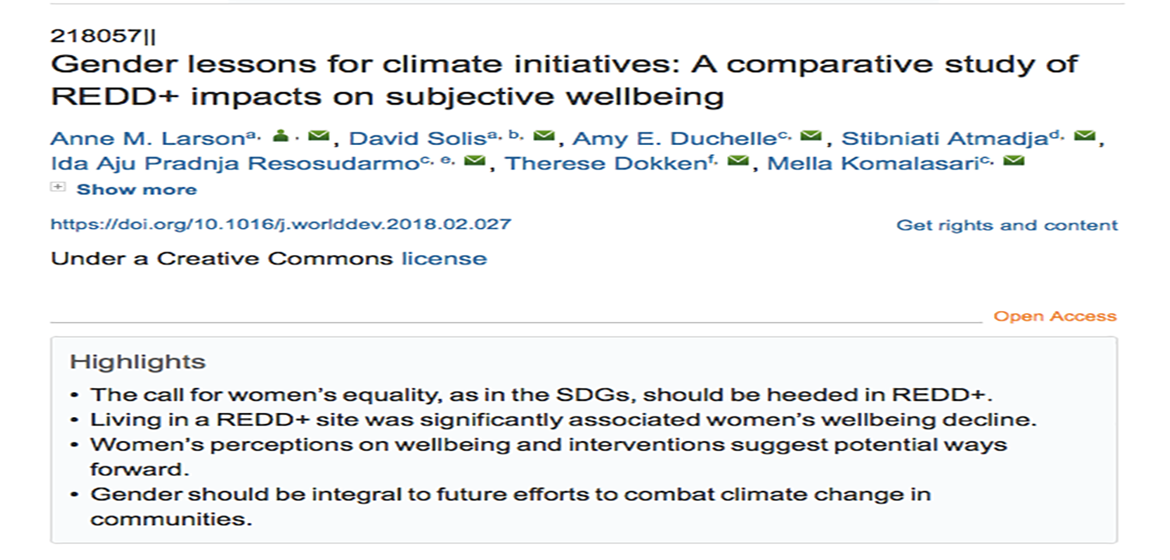Comparative research on subjective wellbeing was conducted at 62 villages participating in 16 REDD+ initiatives and 61 control villages at two periods in time, using a before-after-control-intervention (BACI) design. Focus groups with villagers (68% male) and women (100% female) permit a gendered comparison of definitions of wellbeing and outcomes of initiatives. The results highlight that while definitions of wellbeing overlapped between the two groups, almost half of the women’s focus groups thought that having their own source of income was important. Outcomes regarding wellbeing change suggest that perceived wellbeing decreased in REDD+ villages both for villagers as a whole and for women, relative to control villages, but the decrease was much worse for women – a decrease that is significantly associated with living in a REDD+ village.
These declines may be due to unrealized expectations for REDD+, combined with little attention to gender in REDD+ initiatives, in spite of an important portion (46%) of specific interventions that women view positively. These interventions provide insights into potential ways forward. Overall, however, REDD+ initiatives appear to be repeating past mistakes, with insufficient attention to gender equality and safeguarding women’s rights. More effort needs to be paid to ensuring that gender is an integral part of future initiatives to combat climate change in rural communities.
Download the study from the Source:
Related to SDG 5: Gender equality and SDG 13: Climate action



